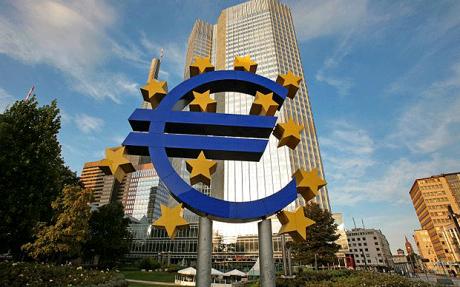March 26, 2020: A new bond-buying scheme launched by the European Central Bank to cushion the impact of the coronavirus on the eurozone economy will discard a crucial self-imposed limit on previous rounds of “quantitative easing” (QE), a legal document shows.
ECB purchases of government debt under its 750-billion-euro ($822-billion) Pandemic Emergency Purchase Programme (PEPP) will not be constrained by so-called “issuer limits” on the share of any one country's bonds it can buy, according to a legal decision on the scheme published Wednesday.
Buying under its previous asset purchase programme (APP) — which has swelled to over 2.6 trillion euros since 2015 — was restricted to 33 percent of any one country's bonds.
“The decision removes virtually all constraints on asset purchases, in a further boost to the credibility of the ECB's commitment,” said Pictet Wealth Management strategist Frederik Ducrozet.
The purpose of the limits was to prevent any suspicion of so-called “monetary financing” of governments, where the central bank becomes their main creditor.
But the “specific, extraordinary and acute” coronavirus crisis means the new scheme “requires a high degree of flexibility in its design and implementation” compared to the APP, the ECB said.
“The ECB can now lend even more support to hard-hit countries such as Italy,” said Berenberg bank analyst Florian Hense.
“While the Eurogroup of finance ministers dithers… the ECB continues to deliver.”
In the decision published in the Official Journal of the European Union, the ECB carefully defended its departure from the previous rule, saying PEPP is “proportionate” to the virus crisis.
Containment measures “place acute strains on the cash-flows of businesses and workers and put the survival of businesses and jobs at risk,” the ECB said.
“This situation hampers the transmission of the monetary policy impulses and adds severe downside risks to the relevant inflation outlook” — or the central bank's primary “price stability” objective of inflation just below two percent.
The ECB “will terminate PEPP… once it considers that the COVID-19 crisis phase is over,” it added.
Such legal caveats to the central bank's moves are vital, as its actions are tightly hedged in by EU treaty and subject to court challenges in a way other monetary institutions like the US Federal Reserve are not.
Germany's Constitutional Court announced this month that a decision slated for this week on the legality of the APP scheme would be delayed until May 5 because of the virus outbreak.
AFP/APP
33747







